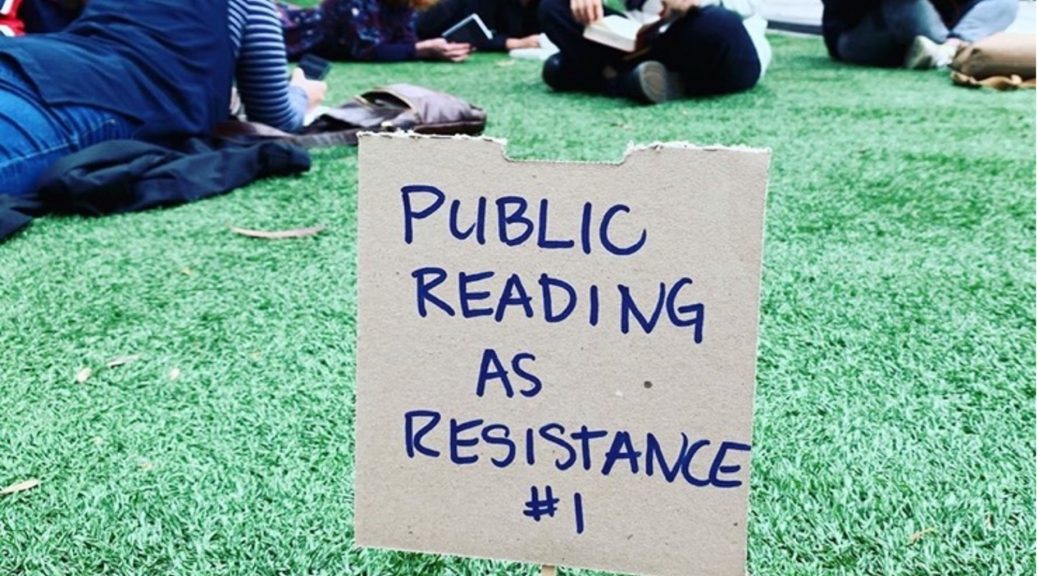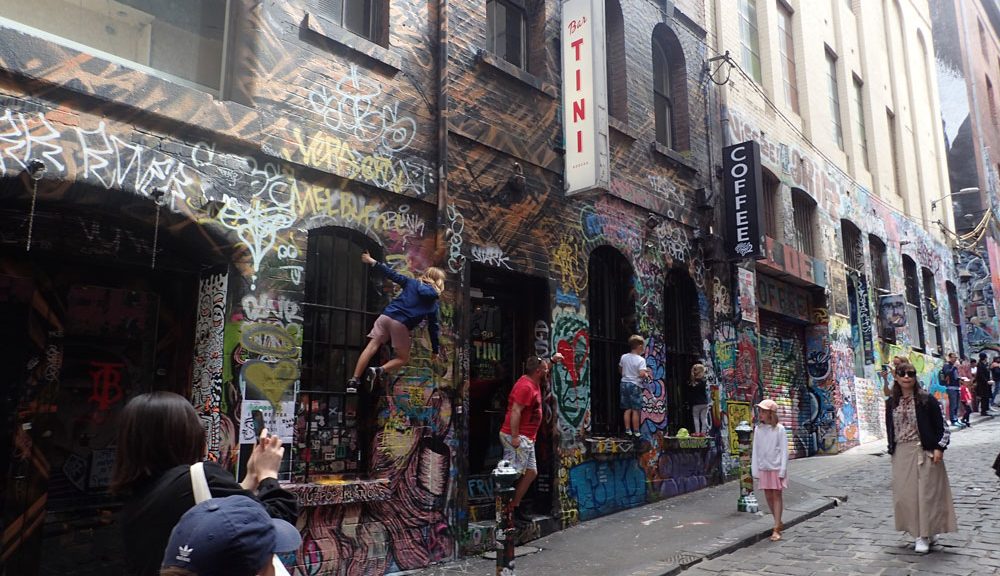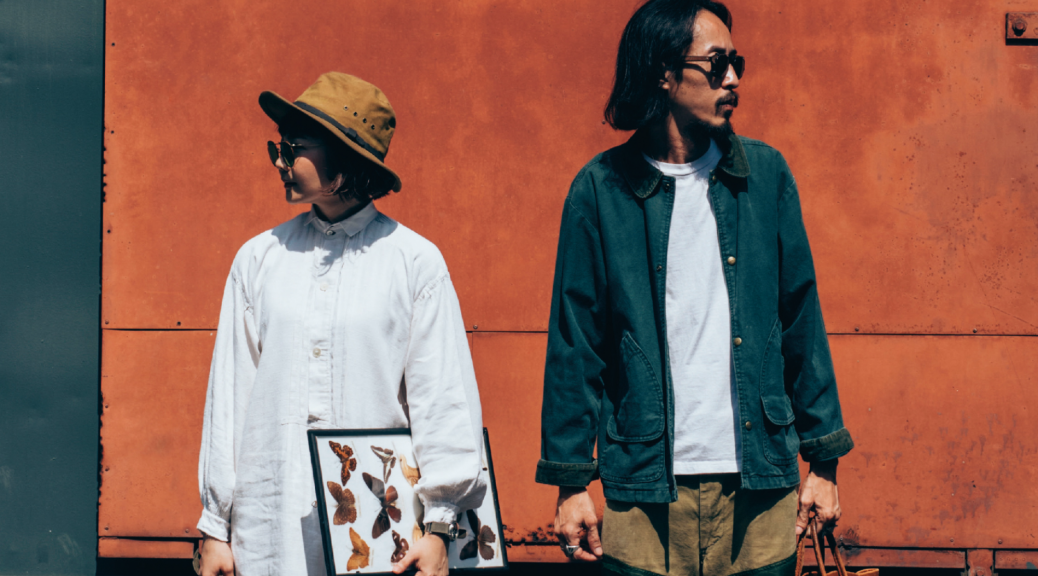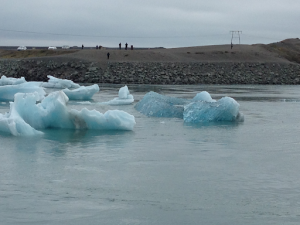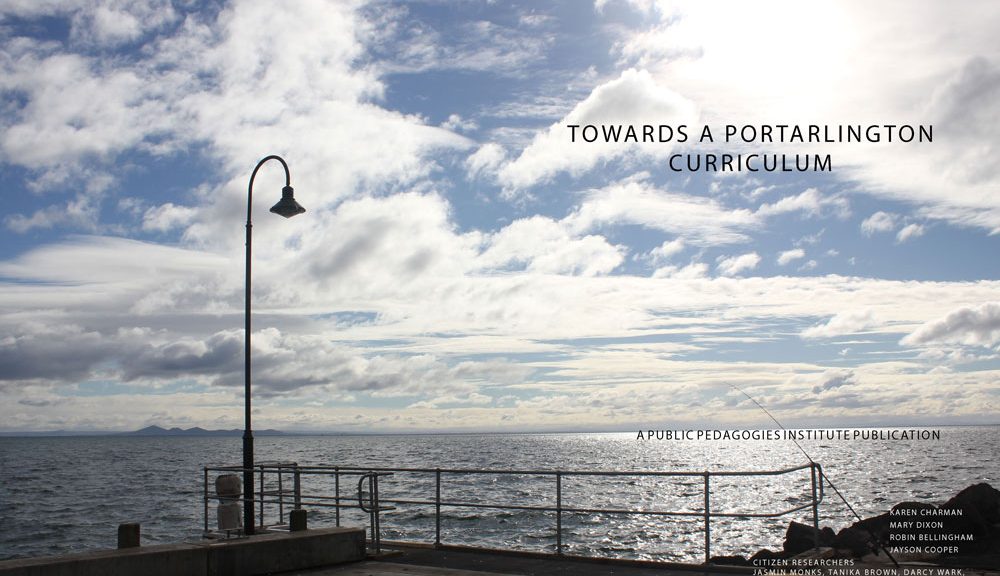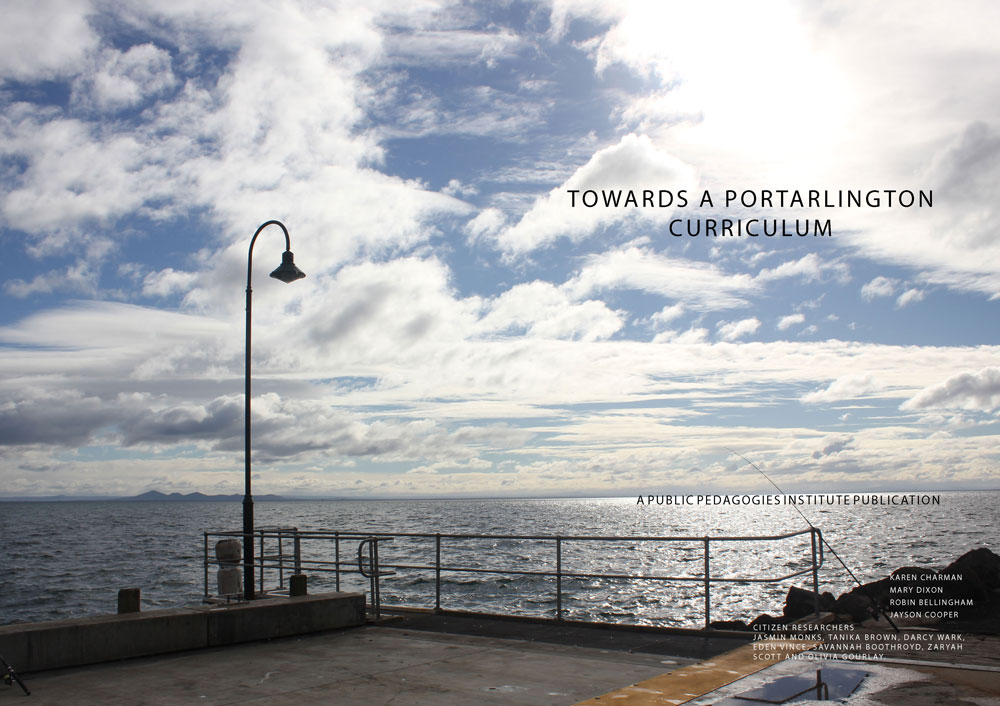The Public Pedagogies Institute 2021 online seminar series will take place this year from October to November.
The theme for this year is Publicness.
Cost: A$120 full price, A$60 concession
(free for students and unwaged; pay-forward will also operate)
Format: Zoom meeting hosted by Karen Charman, Chairperson PPI
View full program
Registrations are now open, please follow link below to register:
Register now
Week 1
Friday October 8, 10.30 am-12.30 pm
Public Space, Spontaneous Memorials and ‘Everyday’ Cultures of Grief During Covid-19
Deborah Madden
An Exploration of the Politics of Public Statues –their Installation, Denigration and Destruction
Debbie Qadri
………………………………………………………………………
Week 2
Friday October 15, 10.30 am – 12.30 pm
Playspaces in public places: The ethical and social challenges of a pop up urban playspace in Melbourne, Australia
Mary-Rose McLaren and colleagues
Publicness and pages: co-publishing with children then and now
Victoria Ryle and Simon Spain
…………………………………………………………………………
Week 3
Friday October 22, 10.30 am -12.30 pm
Private Life is Public Business
Jaye Early
The Ephemeral Public
Karen Charman and Mary Dixon
…………………………………………………………………………
Week 4
Friday October 29, 10.30 am-12.30 pm
The Mid-Apocalypse of Mass Incarceration: Conceptualizing new Publics by Generating Pedagogies of Publicness
Janelle Grant
Local publics and community-determined action
Helen Rodd
……………………………………………………………………………
Week 5
Friday, November 5, 10:30am -12:30pm
Forms for Encounter and Exchange: towards a reparative approach to social aesthetics
Kelly Hussey–Smith and Marnie Badham, School of Art, RMIT University accompanied by students and community partners
…………………………………………………………………………
Week 6
Friday, November 12, 10:30am -12:30pm
Plenary session
Bronwyn Sutton and Debbie Qadri
Journal of Public Pedagogies—Launch
Guest Editors: Jennifer Sandlin and Jake Burdick

